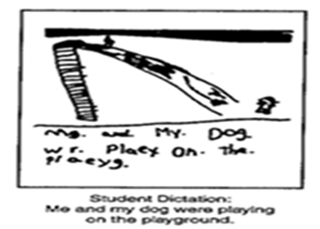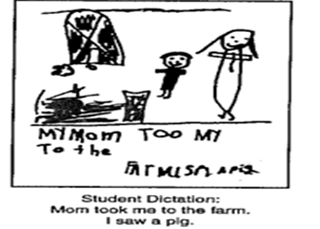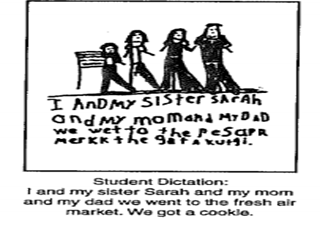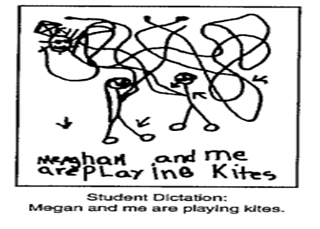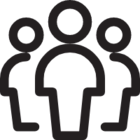Kindergarten Learning Goals and Resources
Reading
End of Year Goals
Goals
- Recognize and name all letters of the alphabet
- Produce the primary sound for each consonant
- Recognize and produce rhyming words
- Read common high-frequency words (e.g ., the, of, to, you, she, my, is, are)
- Follow words from left to right, top to bottom, and page by page
- Ask and answer questions about the details in a text
- Retell familiar stories
- Identify characters, settings, and major events in a story
Learning Resources
Learning Tools
- Britannica Learning Zone
Play and read to learn letters, numbers, shapes, and more
- World Book Early World of Learning
Read-along stories and pictures help teach students basic concepts
- Storyline Online
Award-winning children’s books read aloud by celebrated actors
- PBS Kids Reading Games
Light, fun online activities that help teach beginning reading skills
Read By Grade Three
Writing
End of Year Goals
Goals
- Draw and talk about a picture to show a story or event
- Use scribble letters, inventive spelling, and traditional print in addition to drawing
- State a sentence/sentences about a drawing
- Add details to drawings to increase reader understanding
Math
End of Year Goals
Goals
- Read, write, represent, compare, and identify numbers zero through 20 and count:
- by ones beginning at one to 100 or higher,
- count on by ones from any given number, and
- count by tens to 100 or higher
- Fluently add and subtract within five
- Sort, identify, name, describe and compare basic 2D shapes such as a circle, square, triangle, and 3D shapes such as a cube, cone, or sphere
Learning Resources
Two Way Spanish Immersion Program at Glenside Elementary
Uses Everyday Mathematics (Edition 4), which is a comprehensive Pre-K through grade 5 mathematics program developed by the University of Chicago School Mathematics Project and published by McGraw-Hill Education
Bunker, Marquette and Oakview Elementary
MPS K-5 staff are in a pilot for mathematics curriculum for the 2024-25 school year. Updates will be made when a curriculum has been adopted and approved by the Board of Education.
Learning Tools for Everyday Mathematics:
- Kindergarten Everyday Math (EM4)
- EM4 Math at Home: Help organized by section (unit) for Home Link problems (English and Spanish), selected answers, vocabulary definitions, videos, games and more!
Family Letters:
Stay up-to-date on what your child is learning in class. Family Letters contain background information, vocabulary, games and more for each section (unit).
- English Family Letters
- Spanish Family Letters (coming soon)
Additional Resources
- Becoming a Math Family
A website from the University of Chicago that helps support math learning for 3 to 6-year-olds.
- PBS Kids Math Games
Fun online math games.
- Math Games with a Deck of Cards
Practice math facts and other math concepts with a deck of cards and two players.
- What is a Ten Frame?
Use a Ten Frame to help your child develop strong number sense, place value sense, and fact fluency.
- DREME blog
Resources and activities for developing math skills
- GVSU Regional Math & Science Center
Math games and activities you can play at home or (school). Most everything you need is included: Rules, materials, and possible questions. In most cases, a video to show how to play the game is provided.
- Talking Math With Your Kids
Math is everywhere in our world! You'll find lots of ideas for talking about math with your child--some you've never even thought of.
- YouCubed
Engaging and inspiring math games, tasks, videos, and articles to help students develop a "Math Mindset."
Science
Topics Learned
Physical Science (Motion: Pushes and Pulls)
- Position Observations
- Motion Observations
- Push & Pull Forces
- Collisions (cause change in direction and speed)
- Explain Motion
- Gravity
- Causes of a Change in Motion
Earth Science (Weather and Climate)
- Weather Observations
- Collecting Weather Data
- Temperature
- Sun/Shade
- Wind
- Cloud Observations (cloudy, partly cloudy, dark, white, etc.)
- Measuring Rain
- Snowflakes, Hail, and Sleet
- Seasons
Life Science (Plants and Animals)
- Living vs. Nonliving
- What Living Things Need
- Plant/Animal Habitats
- Worm/Pill Bug Observations and Investigations
- Plant Seeds
- Plants and Animals Cause Change
- Human Impact on Habitat
Learning Resources
Learning Tools
- Cereal City Science Website
MPS elementary current science curriculum
- Critters in the Classroom!
Video about the critters in the kindergarten classroom
Additional Resources
Social Studies
Topics Learned
State Standards
- History: Living and Working Together
- Geography: The World in Spatial Terms, Places & Regions, Environment & Society
- Economics: Market Economy, Wants & Needs, Goods & Services
- Civics/Government: Purposes of Government, Democratic Values, Civic Participation
Learning Resources
Learning Tools
- Curriculum for Kindergarten: Michigan Citizenship Collaborative Curriculum (MC3)
- Discovery Education Students log in through Classlink
